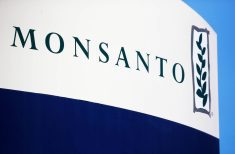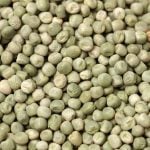Top U.S. grain companies have taken a hard line and are refusing genetically modified crops that haven’t been approved in major markets, while Canada’s grain industry remains more flexible.
So far the Canadian companies are approaching the issue on a case-by-case basis, but that could change, according to Wade Sobkowich, executive director of the Western Grain Elevator Association. The more flexible approach demonstrated how crop development companies have worked with the industry to date to address concerns, he said.
“We have a reasonably good working relationship (with crop developers) on these issues,” Sobkowich said in an interview May 13.
Read Also

KAP flags risky trade for Manitoba farmers
Tariffs, market access uncertainty, trade diversification and export infrastructure top the agenda at Keystone Agricultural Producers (KAP) annual meeting.
“But that being said, this issue is going to get more complicated over time. We really need to turn our minds towards how we resolve these issues… because we are really dealing with them on a case-by-case basis and we are relying on the responsible commercialization policies of the life science companies.
“They’ve been, so far, pretty good in making sure that market acceptance is in place, at least in the example of Xtend soybeans. Monsanto has been, so far, behaving in a responsible way.”The European Union has not approved Monsanto’s new Xtend soybeans that are tolerant to both glyphosate and dicamba, giving growers more weed control options. WGEA’s members will not buy Xtend soybeans without EU approval.
Last week Reuters reported many major American grain buyers have adopted the same policy for Xtend soybeans and other GM crops to avoid conflicts with buyers. In 2013 and 2014, China blocked corn shipments from the United States containing a Syngenta GM trait called Viptera that was unapproved in China.
Cargill and Archer Daniels Midland each said the rejections cost them millions of dollars, and both have sued Syngenta for damages. American corn farmers are also suing Syngenta alleging its actions lowered corn prices.
Bold yellow signs from global trader Bunge are posted at U.S. grain elevators barring 19 varieties of GM corn and soybeans that lack approval in important markets, Reuters reported.
CHS, America’s largest farm co-operative, wants companies to keep seeds with new biotech traits off the market until they have full approval from major foreign buyers, Gary Anderson, a senior CHS vice-president told Reuters.
“I think that would be the safest thing for the supply chain,” he said. CHS implemented a policy last year under which it will not sell seeds or buy grain with traits unapproved by importers.
ADM is refusing GM crops that lack global approval. Cargill did not respond to Reuter’s requests for comment.
Grain companies fear commercial fallout and financial losses, but the market won’t cover segregation costs, Sobkowich said.
“We don’t feel that we should have to pay the segregation costs. And we don’t feel that the farmer ought to pay those segregation costs,” Sobkowich said.
Grain company concerns aren’t restricted to GM crops, he added. Shipments can be rejected if they contain traces of unapproved pesticides. That’s why farmers need to be aware of the products they use.
Grain trading would be enhanced if countries would allow the low presence of unapproved traits and pesticides so long as they have already been approved elsewhere, he added.
“If we have an LLP (low level presence policy) in countries of import then that helps us if we get an inadvertent commingle,” he said. “Then we are not out of contract or out of compliance for the country’s sanitary and phytosanitary requirements.”
Monsanto was so confident of European Union approval it announced in January it would commercialize Xtend soybeans this spring in the U.S. and Canada. Some American farmers have already seeded it, but Monsanto hasn’t released it in Canada and won’t ahead of EU approval, Monsanto spokesperson Trish Jordan said in an interview May 13. However, Monsanto will allow Xtend soybeans to be grown in Canada this year for propagation and trial purposes without EU approval, confident it will be approved before next spring, Jordan said.
And even though the WGEA has said its six members — Cargill, Louis Dreyfus Canada, Parrish & Heimbecker, Paterson GlobalFoods, Richardson International and Viterra — won’t buy Xtend soybeans without EU approval, there are Canadian farmers wanting to grow the crop, Jordan said.
“We are definitely hearing that in Ontario,” she said, adding that there are more weed-resistance issues there than in Western Canada. “It is great new technology. But it is a moot point… because we’ve kind of got this commitment worked out with the trade… that we will not move anything into a commercial position… recognizing that they are a little antsy about having stuff that could be planted that is not yet approved.”
Soybean planting in Manitoba doesn’t normally become widespread until this time anyway. If the EU approved Xtend soybeans this week, some would get seeded, Jordan said.
“There is a little bit of time, but not a lot more,” she said. “It is still possible I suppose… but every week that goes by (without approval) the acres of Xtend soybeans go down.”
Monsanto had expected 420,000 acres of the stacked-trait soybean to be seeded in Canada this year.
“We are not likely to be anywhere near that,” Jordan said.
“Again, obviously, clearly there is a long time before harvest. We just keep waiting and we are hopeful. It is sitting there in the final stages of sign-off with the European Commission and it doesn’t make any sense why we don’t have it (approval) right now.”
It’s unfortunate EU policies can disrupt business and delay farmers’ access to beneficial technology, she said.
Meanwhile, there is alternate Roundup Ready soybean seed available to Canadian farmers, Jordan added.
“I think switching varieties has been working OK from what I’ve heard,” she said.
— With files from Reuters.















